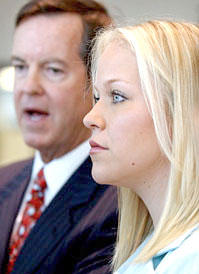I was watching a possession of marijuana charge today. The defendant was pulled over for driving suspended and the officer found marijuana in the glove compartment.
The officer testified that the defendant admitted the marijuana was his.
On cross, the officer admitted that all he could remember the defendant stating several times "C'mon, gimme a break." He had no memory of any question on his part or any other statement by the defendant.
The judge,
sua sponte, starts asking the officer if he is relying on his report and if he wrote the report the same time as he took the statement. The officer replies, "I wrote the report on the same day."
The defense tries to strike the evidence because the officer has no independent recollection. The prosecutor submits. The judge refuses to strike the evidence explaining that yes, the officer has no independent recollection but that the report was contemporaneous and therefore allowed into evidence as a hearsay exception.
I must admit that I sat there a little shocked; I'd never seen this exception used in this manner. After I finished my case I went down to the law library to look up this exception. The test for this exception is:
(1) The witness must have had firsthand knowledge of the event, (2) the written statement must be an original memorandum made at or near the time of the event and while the witness had a clear and accurate memory of [the event], (3) the witness must lack a present recollection of the event, and (4) the witness must vouch for the accuracy of the written memorandum.
Let's examine that for a minute. I think that in this case the exception fails the 4th test. Taken literally, we already know that the officer cannot remember the statement and
therefore cannot vouch for the accuracy of the written memorandum. A truly horrendous interpretation of the 4th test could interpret it to mean that the officer has to testify that he files honest reports. As if an officer is going to say, "Well, I don't know judge. Every third report or so I liberally infuse the report with a series of lies." This renders the 4th test a farce and is pretty clearly not what it is meant to reach.
In fact, the 4th test is the most likely limiting factor for this exception. It would have to be a case by case analysis but there is a perfect example of what this exception is supposed to reach in
Bailey v. Commonwealth, 20 Va. App. 236 (1995). In
Bailey the clerk from a store could not recollect in court what items had been stolen from the store. However, he was able to read from the police report the items which had been stolen. He was able to do this because after the break-ins he went through and inventoried the items with the deputy and told him all the items which were missing. He clearly recalled having done this and could testify to its general truthfulness because he had the memory of having done the specific inventory.
Now, compare that to the evidence allowed in above. The officer could not testify to the general truthfulness because he did not remember asking the specific question or receiving the specific answer. Basically what I'm saying is that the defense wasn't attacking him because he couldn't remember whether the defendant confessed to having "
a bag of weed" or "
the bag of weed" in the car. In such a case, the general recollection of having asked the question and gotten the answer would allow a fallback onto this hearsay exception for the exact wording from the report. The defense was raising the hearsay exception because the officer didn't even have a general memory of a question or statement.
And then there's
Crawford. This is about as crystal clear a violation of
Crawford as I can think of. To be fair, this issue was not raised before the judge. However, as applied today in court, this is a heck of a dodge to get around the right to confront.
Applied properly, as per
Bailey, this exception doesn't greatly infringe upon the right to confront. I can cross examine the clerk in that case as to why he inventoried certain items, whether the deputy was suggestive, how he knew items were missing, &cetera.
Applied as I saw it in court today there is no way to actually cross examine. The officer doesn't remember a question or answer. I can't ask him anything pertinent. At best, I can ask generalities such as how the officer usually writes his reports. That's not a confrontation on the pertinent issue.
Now that I've lit into the trial judge's decision, let me say that I am impressed that the judge actually stated the reason for his decision. I disagree with it and I'm a little perturbed that the judge raised it and not the prosecutor (who was a very competent prosecutor - not someone who needs help from the judge). Still, any judge who states the reasons for his rulings is someone who should be complimented for it.
[addendum] Looking back over the 4 part test, I'm not sure the officer passes the first part of the test either. He wouldn't seem to have first hand knowledge of the possession.





